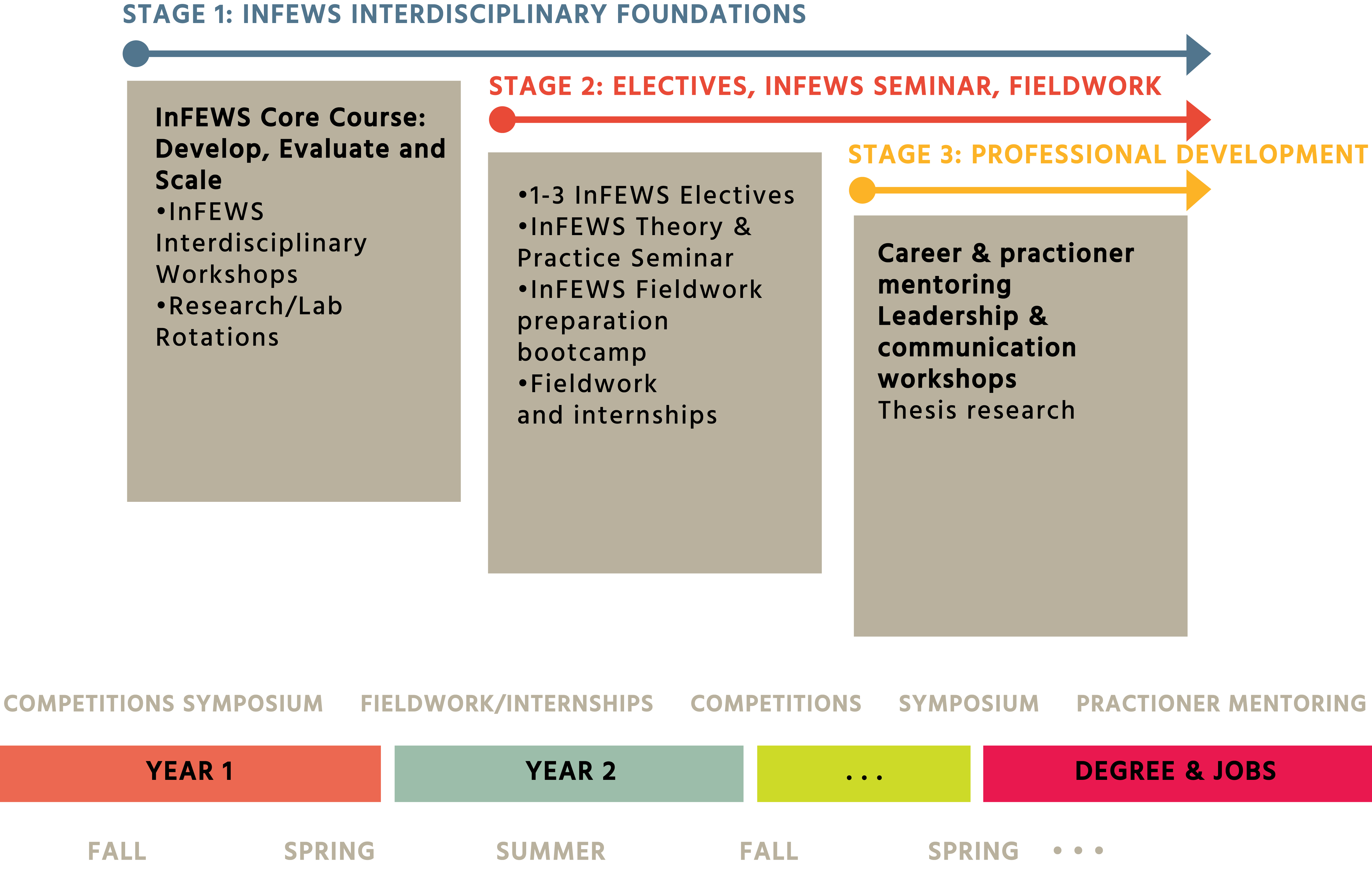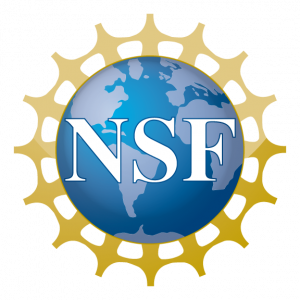Training
Integrating human-centered design, innovative business models, and technological advancements with an interdisciplinary framework of development and continual impact analysis, this program provides cross-cultural learning, prototyping and scaling, and new models for productive multi-stakeholder collaboration.
Students will
- Conduct interdisciplinary research at the nexus of food, energy, and water in collaboration with participating faculty
- Develop 21 st century skills across the InFEWS curriculum
- Participate in development-related workshops and lab rotations
- Have access to context-specific internship with our partner organizations and companies
- Develop new solutions to evolving global challenges

Menu
Course Work
The InFEWS program requires five courses (two core courses plus three electives). The course requirements are in addition to, but may overlap with, the Ph.D. course requirements of your home department. There are no formal pre-requisites to apply, however a certain level of experience with quantitative analysis is necessary to succeed in the core course (roughly equivalent to Stats 121). All course work should be taken for a letter grade.
See listing of Development Engineering courses for InFEWS-eligible courses. The list of courses is the same for DevEng and InFEWS. Students who are terminal masters can take 1 elective, where as doctoral students are expected to complete 3 electives, with only one elective coming from the home department.
 This material is based upon work supported by the National Science Foundation under Grant No. DGE-1633740. Any opinions, findings, and conclusions or recommendations expressed in this material are those of the author(s) and do not necessarily reflect the views of the National Science Foundation.
This material is based upon work supported by the National Science Foundation under Grant No. DGE-1633740. Any opinions, findings, and conclusions or recommendations expressed in this material are those of the author(s) and do not necessarily reflect the views of the National Science Foundation.



